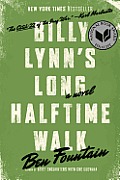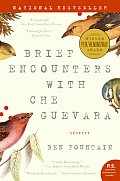
In 1965 my father became president of the community college in a mid-sized town in eastern North Carolina. The local newspaper ran an article announcing the arrival of the new president and his family, the piece accompanied by an achingly sincere black-and-white photo that showed us to be models of Cold War propriety. There was my father in his dark suit, skinny tie, and black-frame glasses, my pretty mother with her hair in a flawless bouffant, and my three sisters and I, the four of us kids staring into the camera with varying degrees of poise and cluelessness. We ranged in age from my oldest sister St., who was 13 at the time, to my next sister C, nine years old, then myself, seven, and finally my youngest sister S, aged one. We lived in a big red brick house at the corner of Fairfield and Waverly Avenues, belonged to the country club and the First Presbyterian Church, and held ourselves to the strictest standards of law-abiding citizens in the mid-century America of the New South. My parents were hardworking pillars of the community; we, their children, made good grades, respected our elders, and stayed out of trouble. This is our story.
C.
My sister C, two years older than me, dressed for school in neat print dresses and saddle shoes, and when reciting the Lord's Prayer on Sundays would shade her voice toward a deeper, more languorous tone, as if practicing the way she wanted to sound once she was grown. She was a devoted fan of the vampire soap opera "Dark Shadows," and followed the latest fads and fashions, local and national, with all the desperate vigilance of a smart, hypersensitive, highly self-conscious girl. Like my other sisters, she got her hair done for free at the community college's Cosmetology Department, where the students needed a steady supply of volunteer clients on which to learn their trade. My sisters dreaded those visits; they never knew what sort of hairstyle they were going to come out with, but for my sister C these appointments were particularly grim ordeals. She was convinced that her breath stunk, and would surreptitiously hold it in for many seconds at a time, inhaling and exhaling only in those brief moments when the stylist turned away. My poor sister C; she truly suffered at these sessions, and there were times when she thought her lungs would explode. One day the student stylist looked down at her and cried, "Look how big your eyes are getting! You look just like a little bird!" C couldn't hold it any longer, and exhaled in a whoosh; the stylist smiled down at her, not unkindly. "Honey," she said, "I don't know what it is you're doing, but whatever it is, it looks like a lot of work."
Me
When I was in seventh grade I got braces. The orthodontist in our town had a staff of seven or eight hygienists who did the routine winching and swabbing at the patients' regular checkups; these techs were all young women, all of them attractive and, to my eyes, dazzlingly worldly and grown-up. Among the boys I went to school with, those of us who had braces formed a kind of secret cult that was fiercely devoted to the hygienist named Paula. Paula was the one we hoped to get on our visits; she was the prettiest and friendliest of all the techs, a brunette with a slender, sexy figure and a marvelously raspy voice. On weekends she sang blues and jazz at nightclubs around Raleigh; she knew I was a Tar Heels fan, and once brought me the autograph of the former UNC football star Don McCauley, who owned a bar in Chapel Hill where she sometimes sang. But the thing that most endeared her to us boys was her professional style, which involved an intimacy lacking in the other techs. Paula had a way of positioning herself so that your cheek was nestled snugly into the pillow of her bosom. Somehow the other techs managed to keep their chests clear even when they had their hands halfway down your mouth, but not Paula. She seemed not to care; in fact she seemed to relish contact, and would bend close to your face as she chatted and laughed, and gently cup your cheek to move you this way or that, and there was always the warmth of her wonderful breasts, those firm, mysterious, incredibly soothing presences around which the entire world revolved.
 For a 13-year-old boy, this was about as close to heaven as you could hope to get. I did, though, have a private worry about my braces during those years, or maybe it wasn't so much a worry as a kind of fantasy or daydream I liked to torture myself with. In this fantasy, there had been a nuclear war that destroyed civilization. I was one of the few survivors, but since all orthodontists and orthodontic techs had died — indeed, the very science of orthodontics had ceased to exist — I was condemned to go through life with these aging, outgrown, scuzz-covered braces that would ultimately, through infection or whatever, kill me.
For a 13-year-old boy, this was about as close to heaven as you could hope to get. I did, though, have a private worry about my braces during those years, or maybe it wasn't so much a worry as a kind of fantasy or daydream I liked to torture myself with. In this fantasy, there had been a nuclear war that destroyed civilization. I was one of the few survivors, but since all orthodontists and orthodontic techs had died — indeed, the very science of orthodontics had ceased to exist — I was condemned to go through life with these aging, outgrown, scuzz-covered braces that would ultimately, through infection or whatever, kill me.
When the braces came off at the beginning of 10th grade, I remember a feeling of happiness that went beyond what you'd normally expect on being freed of a monumental and painful hassle. Something extra was going on here, something verging on existential relief. I'd made it. I'd come through a vulnerable time. If a nuclear war happened, at least now I wouldn't have to face the catastrophe with braces on my teeth.
S.
My youngest sister S had bright blue eyes, fine china-doll features, and wispy blond hair she wore in a short pixie cut. People said she was cute as a button, which was true; S was the very picture of elfin girlhood, this in spite of her fervent wish to have been born a boy. She loathed dresses, lace, bows, ribbons, and frills of all kinds, and was famous at church for insisting to adults and children alike that her name wasn't S, but rather "Kelly" or "Chris" or "Sandy," some gender-ambivalent name that would give the tomboy in her room to breathe.
As a pre-schooler and then as a kindergartener, she had a fixed routine on arriving home from school. Mom would heat up Spaghetti-Os with meatballs for S's lunch, which she would eat in the den while watching reruns of That Girl on TV. Her meal was always served in a soup bowl with a wide rim; S would line the meatballs around the rim and eat the noodles first, and then, making sure no one else was around, she would mash up the meatballs, lower her face to the bowl, and eat the mush while pretending to be a dog, smacking and grunting and wolfing her food like the sloppiest country hound.
St.
Our oldest sister St. was the star of the family. She was beautiful, and by the age of 16 possessed a bust that my friends regarded with quivering awe. She was a cheerleader, an honor student, active in student government, and had worked since the age of 14 at a downtown gift shop that specialized in high-end bridal registries. Her senior year she was elected president of her high school student body, the first woman ever to achieve that office, and on graduation was awarded the school's coveted Curtis Cup, given each year to the most outstanding member of the senior class.
St. was a great kid in pretty much every way you could think of, yet our parents lived in abject terror that she would turn up pregnant one day. Such tragedies happened even among the leading families in town; it seemed that every year or so, a girl of our acquaintance would find herself with child and "have" to get married. Accordingly, throughout high school St.'s curfew was 11 p.m. sharp. If she wasn't home by 11:01, dad would be standing at the storm door in his bathrobe and slippers, backlit by the house as he glared up and down the street. More than once the evening ended in tears, accusations, slammed doors and the like. So much drama; I don't think she was ever more than a couple of minutes late.
St. was a genuinely loving girl with a cheerful, generous heart. She helped us with our homework, and didn't mind doing the dishes as long as there was a radio to listen to. When she was elected student body president, my parents, recognizing all the responsibilities her office entailed, gave St. the use of our '62 Buick LeSabre, and she became somewhat famous around town, her and her baby blue Buick, this beautiful girl sailing past with the radio blaring and her long frosted hair blowing in the wind. She loved to be in motion; it was her nature, which she expressed with a heavy foot and a casual hand on the wheel, more potential for our parents to be terrorized by.
I remember one night I'd been at the movies with a couple of friends, and mom sent St. to pick us up. We all piled into the backseat and immediately got silly; perhaps we were giddy at entering the presence of my popular big sister, but in any case, we laughed like maniacs when she wheeled the big Buick in squealing turns through the parking lot. She cornered the exit even faster; we howled and cheered her on. As she picked up speed on the street my friends and I curled ourselves into balls and tumbled around the backseat with every swerve of the car, screaming with laughter, banging off each other like loose pinballs, lucky, for this night at least, to have my big sister at the wheel, driving fast and free.